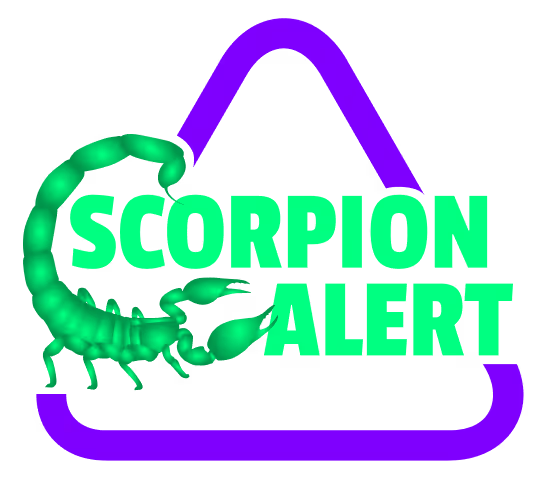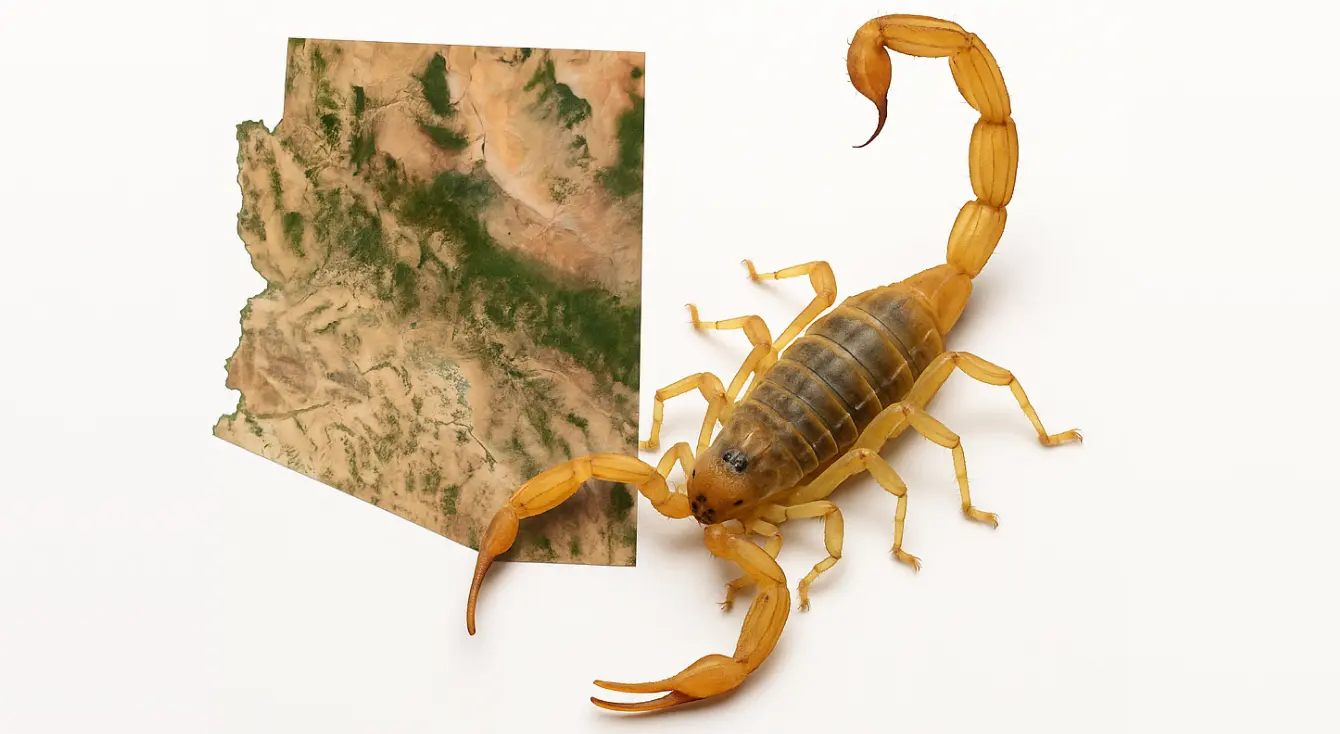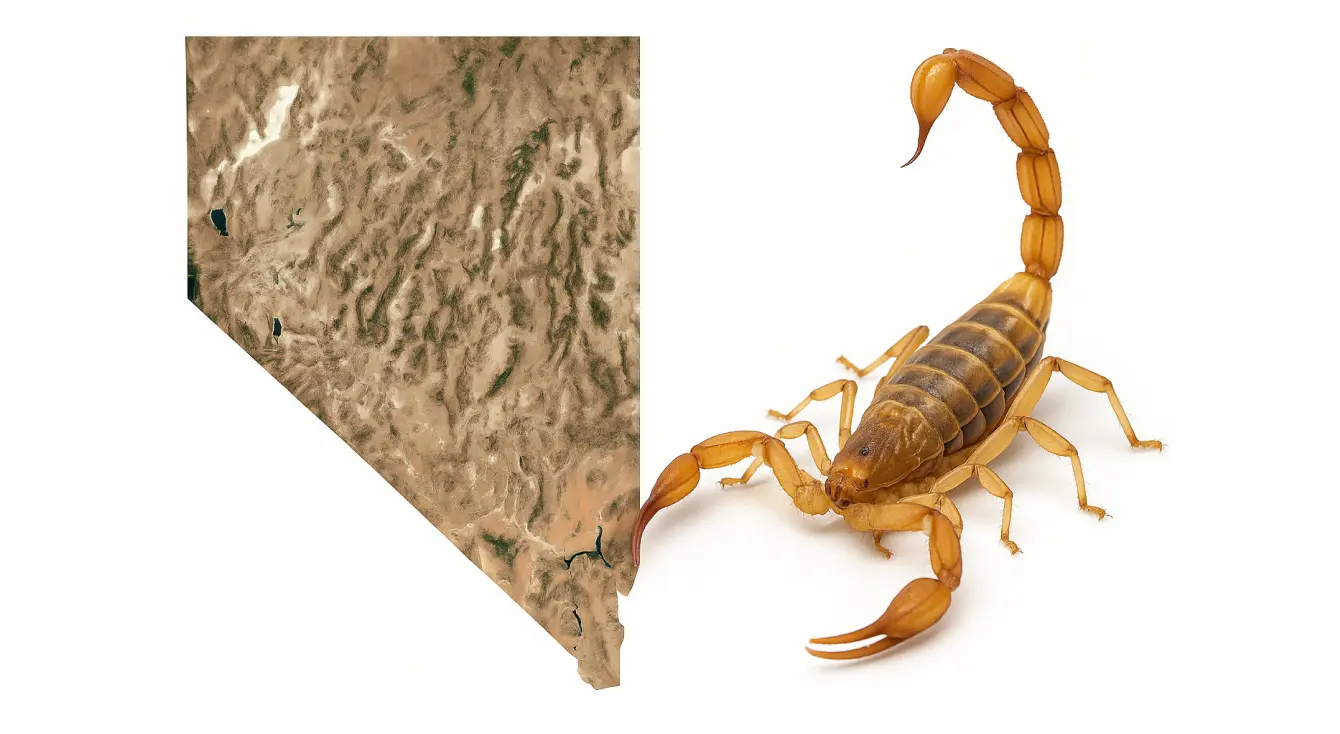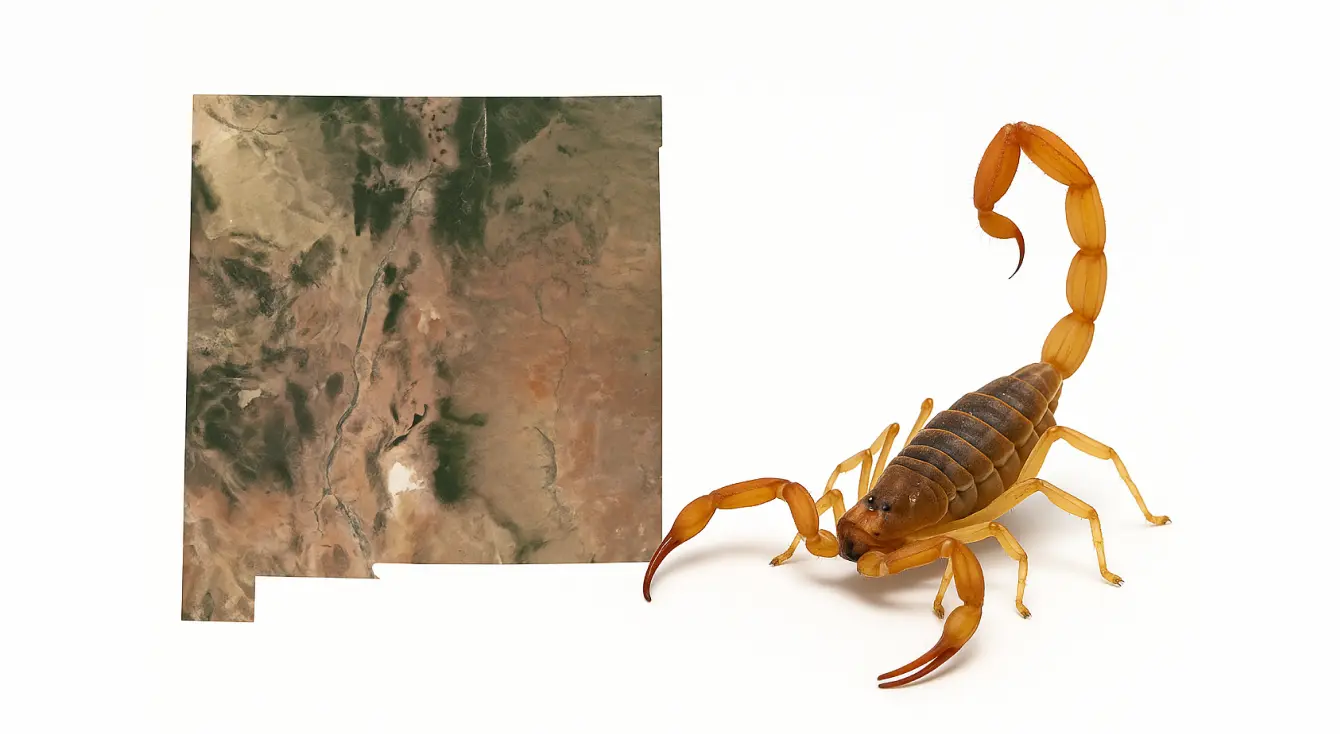Arizona is ground zero for scorpion activity in the United States. Thanks to its desert climate and rugged terrain, the state is home to more than 30 species—but only a few are regularly encountered around homes.
Here are the most common scorpions you’re likely to run into in Arizona:
1. Arizona Bark Scorpion (Centruroides sculpturatus)
This is Arizona’s most notorious scorpion and the only species in the U.S. considered medically significant. It’s responsible for the vast majority of scorpion stings that require medical attention.
Key traits:
- Light tan color with darker back striping
- Slender body and tail
- Thin pincers
- 2.5–3 inches long
- Climbs walls, ceilings, and furniture
Venom risk: High. Its sting can cause severe pain, numbness, muscle twitching, and in rare cases, breathing issues. Children and elderly individuals are most at risk.
2. Stripedtail Scorpion (Paravaejovis spinigerus)
Sometimes called the “common desert scorpion,” this species is widespread across Arizona, especially in Phoenix, Tucson, and surrounding desert communities.
Key traits:
- Brown to tan with two faint stripes on the back
- Thick, chunky pincers
- Usually found on the ground or under rocks
Venom risk: Low. The sting is painful but not medically serious.
3. Giant Hairy Scorpion (Hadrurus arizonensis)
The largest scorpion in North America, it’s mostly found in the Sonoran and Mojave deserts. Despite its intimidating size, it's relatively docile.
Key traits:
- Yellow body with a darker, almost black back
- Covered in fine brown hairs
- Can grow over 5 inches in length
Venom risk: Moderate. Painful sting but not considered dangerous.
Where They Like To Hide
Arizona scorpions follow a behavior called thigmotaxis—they like tight, secure spaces. That means you’ll often find them:
- Along baseboards and wall seams
- Under furniture or inside shoes
- In garages, closets, or laundry rooms
- Outdoors under rocks, pavers, and wood piles
How To Protect Your Arizona Home
- Seal cracks and crevices around the home
- Remove debris like leaf piles, bark, or lumber
- Install Scorpion Detectors to monitor baseboards at night
- Use a UV flashlight to sweep sleeping areas and high-risk zones
- Shake out shoes, towels, and bedding, especially in summer
Living in Arizona means being scorpion-aware, but it doesn’t mean living in fear. With the right knowledge and detection tools, you can keep your home and family safe—even during peak scorpion season.



.webp)


